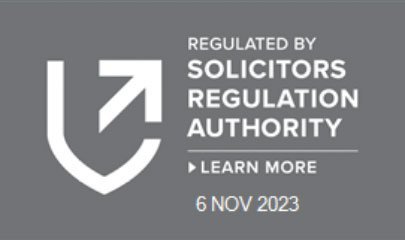What is surrogacy?
Surrogacy is a practice where a woman (‘the surrogate’) carries and gives birth to a child for another person or couple (‘the intended parent(s)’). Surrogacy can be traditional or gestational. Traditional surrogacy involves the egg of the surrogate being used, so that the child is genetically related to the surrogate. With gestational surrogacy, the egg of the intended mother or a donor are used, so there is no genetic connection between the child and the surrogate. Surrogacy has become increasingly common; the number of children born from surrogacy has increased almost fourfold over the last decade.
Current Surrogacy Law
In the UK, surrogacy is governed by the Surrogacy Arrangements Act 1985 and the Human Fertilisation and Embryology Act 2008. In law, the legal mother of the child at birth will be the surrogate, while the legal father or second parent will be the surrogate’s spouse or civil partner( if she has one). If the surrogate is not married or does not have a civil partner it is possible to register one of the intended parents as the father of the child.
As a result, at the time of birth, a child born through surrogacy, may not be legally related to either of the intended parents.
In order to transfer legal parental status to the intended parents and extinguish the parental rights of the surrogate, a parental order must be made. This cannot be made until at least six weeks after the child’s birth, as up until that point, the law does not deem the surrogate’s consent to be valid. In practice, intended parents are likely to have to wait up to six months to a year after the child’s birth before a parental order is made. This is in no small part due to an protracted, and sometimes expensive, legal process.
Unlike in the US, commercial surrogacy is prohibited in the UK. Commercial surrogacy involves the surrogate mother being compensated for her services beyond reimbursement of expenses. This means, in essence, that in the UK a surrogate mother can’t be paid anything more than her ‘reasonable’ expenses. Although expenses can be construed broadly to include loss of earnings, pregnancy support and medical expenses.
The Law Commission’s Reform Recommendations
On the 29th March 2023, the Law Commission introduced a report with some recommendations, which if enacted, will change the way that surrogacy operates in the UK.
In their report, the Law Commission recommends introducing a ‘new pathway to legal parenthood’, under which the intended parents would become parents of the child from birth. This would be subject to the surrogate having the right to withdraw consent. This would remove the need for a parental order to be made in the majority of cases, but where an order still has to be made, the Law Commission recommends reforming parental orders to allow the court to make one where the surrogate does not consent, provided the child’s welfare requires this.
Notable is the fact that commercial surrogacy remains prohibited under the new recommendations. According to the Law Commission, this ensures that “surrogacy continues to operate on an altruistic rather than a commercial basis.”
The Law Commission also recommend the creation of a new Surrogacy Register. If created, this would give children born through surrogacy the ability to trace their origins when they are older.
What Happens Next?
It is now up to the government to consider and respond to the Law Commission’s recommendations, and decide whether they would like to introduce the changes into Parliament to become law. An interim response should be available within 6 months, which will likely give an indication as to the likely outcome.
Legal Advice
If you would like to know more about surrogacy law or require legal advice on any stage of the surrogacy process, please get in touch with us at Allard Bailey Family Law.
To book a consultation or telephone appointment with one of our team, please call 020 7993 2936 or complete the Contact Form and we will get in touch with you.
































































